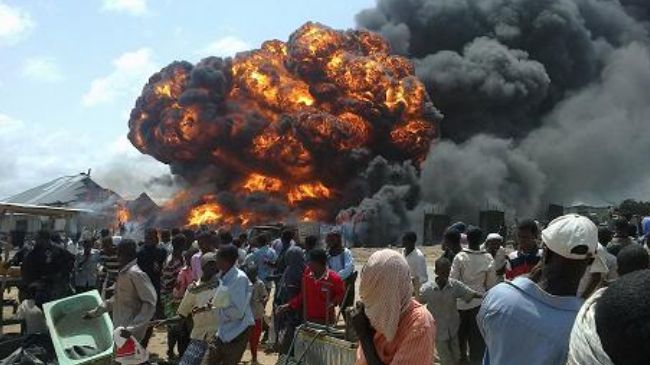Ahmed Godane, the leader of the extremist Islamist group al-Shabab since December 2007, was killed by a US drone strike in Somalia this past Monday, September 1 (as confirmed by the Pentagon on September 5). He and six other militants were killed in two vehicles headed toward Barawe, Somalia right after a meeting of the group’s top leaders. The strikes were directed using “manned and unmanned aircraft” along with “hellfire missiles and precision-guided munitions.” This is not the first time the U.S. has carried out an airstrike in Somalia. In January 2014, a missile strike killed an intelligence officer of al-Shahab, and in October 2013, another attack killed al-Shahab’s explosives officer.
Ahmed Godane, the leader of the al-Shahab who guided its alliance with al-Qaeda, has led particularly malicious and deadly terrorist attacks with his group, such as the attack on Westgate Mall. The U.S. offered a reward of $7 million for any information about Godane.
He and his followers led several bombings and suicide attacks in Somalia, and most notably the attack on the Westgate Mall in Nairobi, which resulted in the death of thirty-nine people in September of 2013. He declared that this violent attack was a vengeful action against Western and Kenyan involvement in Somalia, and he planned the attack such that the date fell close to the 9/11 attacks of 2001 on the World Trade Center. Godane’s death is a significant loss for his Somalia-based al-Qaeda affiliated organization, according to government officials.
Godane’s death has other far-reaching effects on both al-Qaeda and al-Shahab. This power vacuum (as Godane never had a clear successor) within al-Shahab will likely result in a split between al-Shahab and al-Qaeda and an alliance between al-Shahb and an Islamic State group in Syria and Iraq. The effects were also felt on the residential life in proximity to the area where the drone strikes were carried out. Several residents were arrested with the indictment of spying for the U.S., and even nomads transporting milk and grass were interrogated and detained.
Somalia’s government recently regained control of the prison in the capital after suspicious al-Shahab members tried to free the extremists held within the prison. Al-Shahab carries out most of its plans within Somalia’s rural regions after its exile from the capital by the African Union. Al-Shahab is now facing imminent extermination from southern Somalia by Somali military officials.
By Sarah Wie

